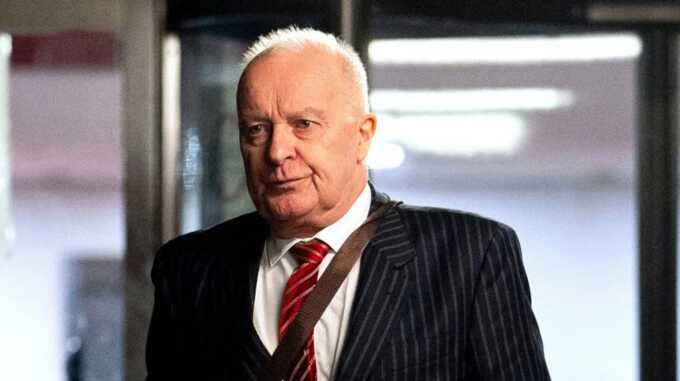Ex-lawyer spared jail over false Iraq War claims
A former human rights lawyer has been spared jail over false claims of abuse made against British troops fighting in Iraq.
Phil Shiner was given a two-year suspended sentence at Southwark Crown Court after pleading guilty to three counts of fraud relating to legal aid claims made in 2007.
Judge Christopher Hehir said "although there was obvious dishonesty", he did not believe the former lawyer was "motivated by personal greed".
Shiner sought £200,000 of legal aid funding in an application for judicial review.
Judge Hehir said: "He got carried away with enthusiasm by his client’s cause and his judgement suffered as a result."
Richard Thomas KC, mitigating, said Shiner, 67, had "suffered professional ruin".
The former boss of Public Interest Lawyers was struck off by the Solicitors Regulation Authority in 2017 for pursuing false torture and murder allegations against British troops.
The charges relate to an application to the Legal Services Commission made by Shiner for his firm to represent clients including Khuder Al-Sweady.
It was claimed that his nephew, Hamid Al-Sweady, was unlawfully killed while in the custody of British troops at military base Camp Abu Naji.
A lengthy inquiry into wider allegations of abuse at the hands of British soldiers established "beyond doubt" that all the most serious allegations had been found to be "wholly without foundation and entirely the product of deliberate lies".
According to the National Crime Agency (NCA), Shiner received around £3m in the value of the contract and the ensuing Al-Sweady inquiry cost the taxpayer £24m.
The inquiry’s report found that Hamid Al-Sweady had been a participant in an attack on British forces and was killed "outright" during fighting, rather than detained alive.
During sentencing on Tuesday, Judge Hehir told the court: "The defendant isn’t being sentenced for anything that happened at the Al-Sweady inquiry, nor can it be said the judicial proceedings of the Al-Sweady inquiry in any sense represent harm.
"They were part of a judicial process that in the end led to some very firm conclusions."
In making his application to the Legal Services Commission, Shiner failed to disclose that an agent acting on his behalf and with his knowledge had been cold-calling and making unsolicited approaches to potential clients in Iraq.
He also failed to disclose that he was paying referral fees, which is not permitted as part of gaining a legal aid contract.
Read more similar news:
Comments:
comments powered by Disqus


































